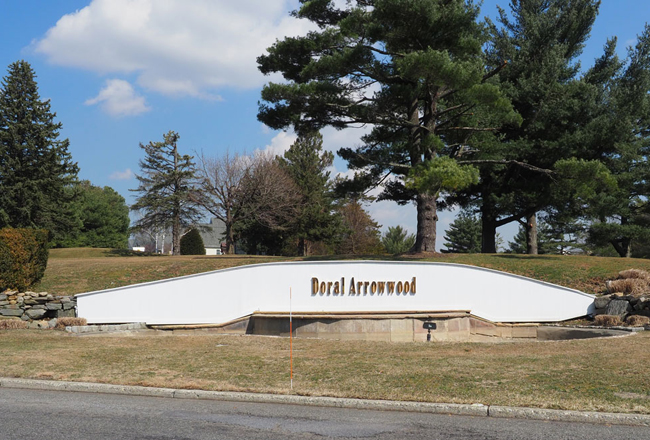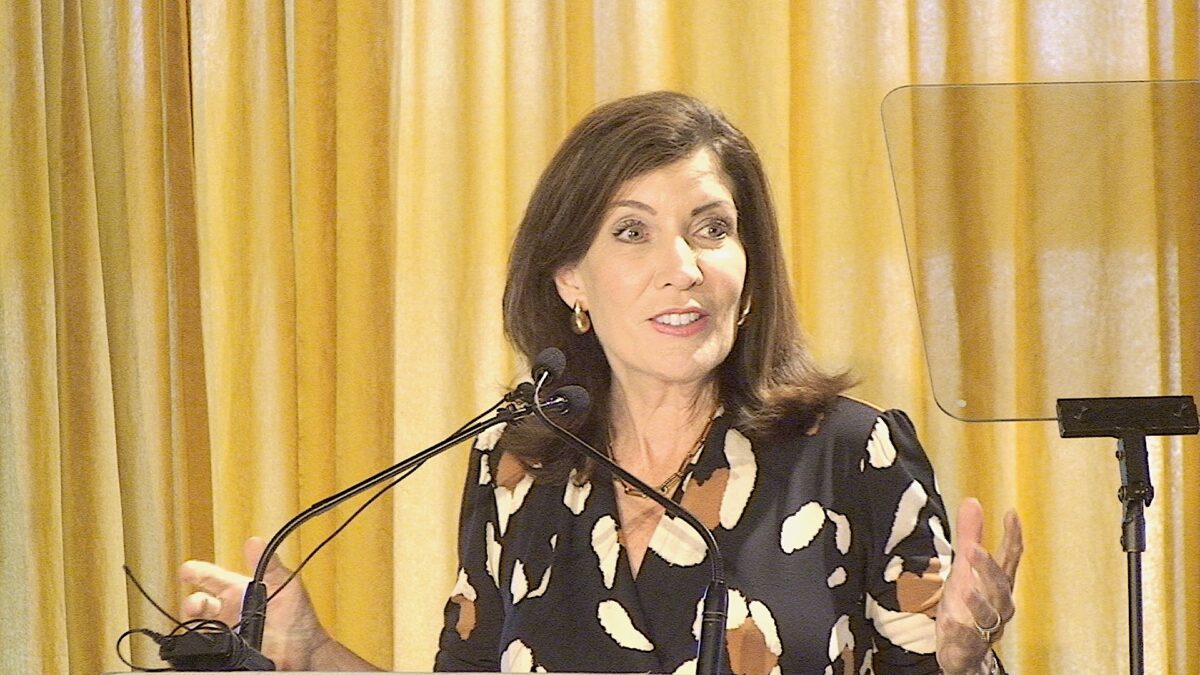A Manhattan judge has granted a preliminary victory to the owners of the shuttered Doral Arrowwood Conference Center and Hotel, ruling that the mortgage owner may not foreclose on the Rye resort, for now.
Real estate investor Charles S. Cohen bought the $75 million mortgage at a discounted price in December, according to court records, with the intention of foreclosing on the property, demolishing the structures and building a new facility.

But DCCA LLC, the family company that owns Arrowwood, sued Cohen and Cohen Brothers Realty Corp. on Feb. 4 in Manhattan Supreme Court for $250 million. Lloyd Heller, DCCA”™s chief executive officer, claims he asked Cohen to help the family company buy the mortgage, but Cohen violated a nondisclosure agreement to buy the bank note for himself.
“DCCA is trying to blame me for its own problems,” Cohen states in an affidavit in which he denied allegations of fraud and breach of contract.
The underlying dispute is being fought in Westchester Supreme Court, where CW Capital Asset Management and U.S. Bank of Minneapolis filed a mortgage foreclosure action nearly a year ago. Justice Gretchen Walsh appointed a receiver to run the resort while the interested parties figured out how to wind down its affairs.
Arrowwood closed on Jan. 12.
DCCA ”“ consisting of the children, grandchildren and great-grandchildren of Alfred and Doris Kaskel ”“ bought Arrowwood from Citibank in 1986. It has 373 hotel rooms, a conference center, golf course and driving range, and other sports, recreational and dining facilities.
According to Heller, there was no legitimate reason to foreclose on the mortgage. The resort was current on its financial obligations, he states in an affidavit, and it made a $4.7 million profit in 2018.
But under receivership, according to Heller, Arrowwood lost more than $1 million in 2019. The stigma of the mortgage foreclosure hurt its reputation and more than 100 rooms were closed to clean up mold “that never would have happened on our watch.”
DCCA tried buy the mortgage from CW Capital for $40 million to $42 million, according to Heller, but got no response.
By last September, he states, it was clear that Arrowwood “was being run into the ground.” He asked Cohen, who had previously expressed interest in partnering with DCCA, if he was interested in buying the mortgage.
He claims they discussed forming a joint venture to own and operate Arrowwood. A nondisclosure agreement was drafted, prohibiting Cohen Brothers and its affiliates from revealing any confidential information to any lender.
Then CW Capital assigned the mortgage to an affiliate, Anderson Hill Road Loan LLC, which assigned it to Anderson Hill Road Capital, a Cohen affiliate.
“It is self-evident,” Heller states in the affidavit, “that Cohen and other Cohen parties breached (the nondisclosure agreement) in order to buy the loan directly from the lender behind DCCA”™s back.”
Cohen then allegedly declined to provide more funding to keep Arrowwood operating. Events and bookings were cancelled, employees were fired, and the resort closed.
In Cohen”™s version, Heller was running a “bait and switch,” luring him into discussions, making exorbitant demands, declining to contribute any capital, and then signing the nondisclosure agreement after the bank note was sold.
“There was absolutely no purpose for the nondisclosure letter at that juncture,” Cohen states, “other than to be a litigation trap sprung by DCCA so that they could manufacture an alleged breach of contract claim.”
Cohen was familiar with Arrowwood. He grew up in Harrison, his firm held events there, and he has developed other nearby projects.
It was common knowledge, he states, that the resort was in disrepair and financial distress.
“DCCA approached me and begged me to act as a “white knight,” according to his affidavit. The family wanted him to take control of the property, redevelop it and allow DCCA to maintain a silent minority position to help the family “avoid paying significant tax liabilities.”
His initial plan was to restore Arrowwood to its past grandeur. But when he toured the property in October he found structures beyond repair, poorly maintained facilities, lack of routine maintenance and an antiquated layout.
“The existing hotel could not be salvaged,” according to his affidavit. “We would need to start from scratch, demolish the existing building and build an entirely new structure.”
He claims Heller agreed with his conclusions, and after he acquired the banknote Heller congratulated him in writing.
Cohen claims he never used any confidential information from DCCA to obtain the banknote, and given his plans for the property, DCCA”™s financial and operational data was “of virtually no use.”
Justice Andrew Borrok in Manhattan Supreme Court found Cohen”™s legal argument “hollow.” He granted DCCA a preliminary injunction Feb. 25, restraining Cohen from foreclosing on the mortgage for now, “to preserve the status quo.”




















